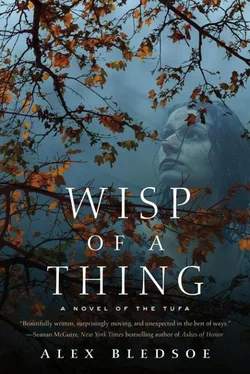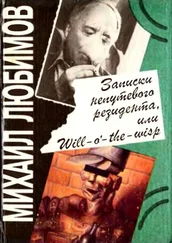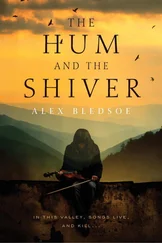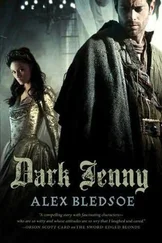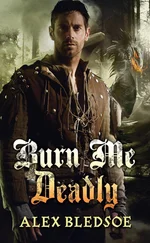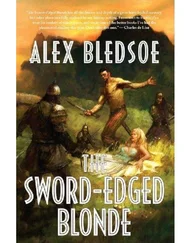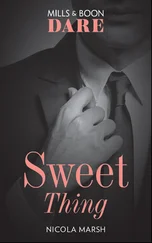Somewhere a coyote faintly yipped. It sounded amused.
It must have been a dream. Maybe the airplane nightmare again. Or just noise in the building, another guest or something. Or someone outside in the street, although at this time of night, Needsville seemed abandoned to its ghosts.
He took several deep, regular breaths and closed his eyes.
Then the sound came again, and he sat straight up in bed.
It was a cry similar to the coyote’s, with the same rhythm and timbre. But it was in a somewhat higher range, and had an unmistakable human quality. Somewhere outside, fairly close, some one was howling back at the night.
Then the sound turned into a long, despondent wail, a new sound not native to the wild. It was the sound of a human being in true pain, of someone demanding answers from a God who refused to reply.
The cry faded into the night. After a few moments, the crickets and other insects resumed their music, and the real coyote yelped once, as if to acknowledge the human crier’s superior torment. Rob lay awake for a long time, but the noise never came again.
“Yeah, I’m on my way,” Bliss Overbay said into the phone. She watched dust float in the sun blazing through the window over her sink. “Just wanted to warn you I’ll be a few minutes late, I have to run through town and pick up some things. Okay. Bye.”
She hung up the ancient rotary phone and leaned against the kitchen wall beside it. She remembered that same phone from when she’d been a child in this house, ringing with the good and bad news that marked transitions in her life. She yawned, then padded across the hardwood floor, leaving wet footprints from the shower. She’d lied to her boss: She had nothing to pick up in town. She did, however, have a major sense that something important required her presence there, and she knew better than to ignore it.
In the bathroom, she undid the towel from her hair and let the water-heavy black strands fall down her bare shoulders and back. The unadorned face she seldom showed to the world looked out from her mirror. To her, she looked as old as the hills around her, and far less graceful.
As she brushed her hair, the snake tattoo coiled around her biceps seemed to move independently of her arm. Its one visible eye watched her in the mirror.
She yawned again, this time so hard, her ears popped. She’d slept only in fits, and in between had endured the entirely inappropriate desire she’d felt since making eye contact with that strange boy at the Pair-A-Dice. At last, just before dawn, it faded enough for her to get a bit of deep, dreamless sleep. Then her alarm clock yanked her back to the mundane world.
Now she slowly braided her hair, her movements as lethargic as her thoughts. She needed coffee, and clear air, and a song to get her connected back to this existence. The coffee was brewing, and she opened the window to allow the cool morning breeze to caress her still-damp skin. And as for the song, there was only one that would do.
Her voice, the one she used only for occasions when the song meant life or death, rang through the empty old house. The air trembled the way it always did, and she felt the presence of those the song summoned, praised, and kept in their proper places.
Oh, time makes men grow sad
And rivers change their ways
But the night wind and her riders
Will ever stay the same….
* * *
“Oh, God,” Berklee said, her arm draped across her eyes. “There ought to be some exercise to thicken your eyelids so the sun can’t get through. Do you think every time you blink, you wear them down a little?”
She lay in bed, naked except for her bra and one sock. Doyle stood at the closet holding a clean shirt. He’d slept on the couch once he saw that Berklee was going to toss and mutter all night, and even in the other room, with the door shut and the air conditioner running, his wife’s drunken snoring kept him awake until nearly dawn.
“I can put some tinfoil over the windows if you want,” he said.
She sat up, blinking. “No, that’s just stupid. Besides, I have to go to work. Is there coffee?”
“Same as every morning.”
She scooted to the edge of the bed. Her hair was matted where she’d sweated out the effects of the alcohol. She stumbled into the bathroom, and he heard her throw up. It wasn’t an epic puke like some mornings, but it was enough to envelop him in sadness. She emerged wrapped in her bathrobe and went into the kitchen.
He followed, pulling on his shirt. “So how’d you like Rob?”
“Who?” she said as she poured herself some coffee. She ignored his empty travel cup waiting beside the machine.
“The guy we took to the Pair-A-Dice.”
“Oh. He was all right, I guess.” Then her memory grew a bit clearer. “Wait—did he run off with Bliss?”
“No, we took him home. Alone.”
“Oh.”
He gently nudged her aside and filled his cup. “You know, he was a nice guy. Thought we might have him over for dinner tonight. I could grill out, maybe he’d bring his guitar and play for us.”
“You planning to invite Bliss, too?” she said. Her hangover kept her sarcasm from being too venomous.
“No, just him.”
She nodded, careful with her tender head. “Okay. I’ll pick up some stuff after work. Maybe start a casserole or something when I get home.”
He wondered why she was so accepting of this. Was she just grateful for an excuse to go through the motions of normality? Was it one more way she denied there was any problem?
He snapped the lid onto his travel cup. “Well… I have to go.”
“Have a good day,” she said in a small voice, like a little girl playing at being a wife.
“Do my best,” he assured her.
* * *
Peggy Goins stretched toward the sky and yawned. Her feet twisted with the movement and crunched the gravel beneath them. The exhalation from her first cigarette of the morning trickled out of her open mouth like incense from a brazier.
She finished her sunrise smoke and started to go back inside when she heard the faint sounds of a guitar. She paused, ground her butt into the gravel alongside years of its comrades, then peeked at the porch around the corner of the building.
Rob sat in one of the front porch rockers, his guitar across his lap, picking so faintly, she could barely hear it. He had an easy touch with the instrument; his fingers slid on the neck with little of that annoying screech some players produced when they changed chords.
She mainly watched his face, though. She believed a musician’s expression when he played in solitude told you more about him than anything else. Some made exaggerated “stage” faces even when alone, while others looked bored with the tedium of maintaining their skills. Rob’s face, though, mirrored his music. The old perennial tune he played now, trickling softly through the cool air like a brook over its rounded bed-stones, exactly reflected the sad, weary look on his face.
Oh, listen to my story, I’ll tell you no lies,
How John Lewis did murder poor little Omie Wise….
No one who knew his story could doubt what inspired this choice of song. Tears unexpectedly welled up and she slipped back out of sight, not wanting to be caught spying.
She wiped the corners of her eyes, then checked her fingertips for mascara. The boy’s tragedy had seemed abstract and distant until this moment. She imagined how she’d feel if Marshall died that way, and the guilt that would come with knowing he was coming to surprise her. They had sat together on the couch, holding hands as they watched Rob, on TV, struggle through George Jones’s “He Stopped Loving Her Today” while the celebrity judges, even that smug English one, openly wept. The obvious choice of song, the fact that it was on TV, and the overall falseness of the show had kept her from feeling anything at the time. Now, though, it came in a rush and threatened to overwhelm her.
Читать дальше
